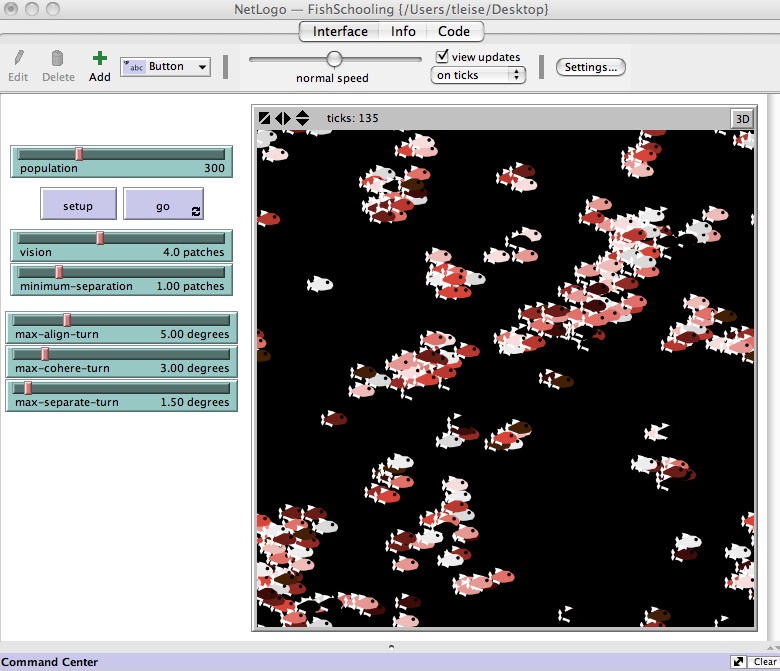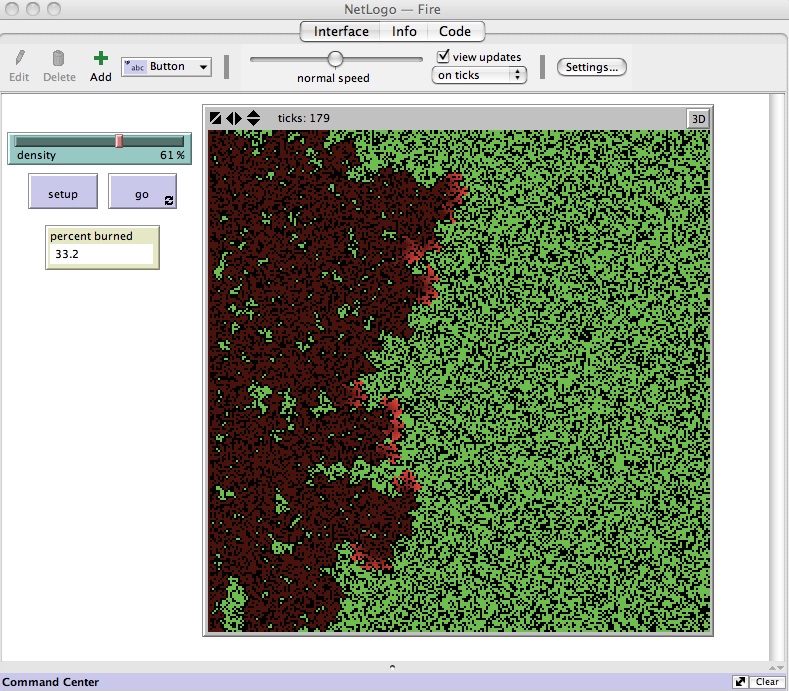

Meets: MW 10am in JOCH202 and T 1pm / F 10am in Mudd014
Office hours: MW 2-4pm and Tues 10am-noon
Other times by appointment or simply try stopping by my office.
I am often available on Thursday but do have occasional meetings during that time.
Text: Agent-Based and Individual-Based Modeling by Railsback and Grimm (available at Amherst Books)
Materials: NetLogo modeling software (free download, works on all computers)
There are no requisites for this course--everyone is welcome!
Mathematical modeling plays an important role in our society. In this course, we will explore models involving different aspects of the environment, such as spread of forest fires, diffusion of pollution, the balance between predator and prey in an ecosystem, and the rules by which fish school and birds flock. The course will revolve around individual and group modeling projects, using NetLogo, software that is easy to learn to use and is a great modeling tool. We'll start with Conway's "Game of Life" to learn how to use the software and discover the amazingly complex dynamics that can arise from a few simple rules. Then we'll see through a simple model of how forest fires spread, the role of a critical threshold of fuel density, beyond which a fire spreads explosively instead of being controllable. Through a model of fish schooling, we will discover how order can emerge from individuals behaving according to basic rules, with no leader or other form of group control.
In general, we will learn basic principles of how to develop and analyze models, and have a lot of fun exploring the models along the way. Class meetings will involves lots of creative activity: brainstorming ideas for important features of models, development and exploration of new models, and discussion of what the models can tell us. Lectures will be minimal. There will be no exams; the grade will be based on project reports and presentations.


Attendance: You are to be in class and to be there on time. Cooperative learning is more effective and more fun than struggling through material on your own. We will spend a lot of class time actively discussing or working on modeling problems, so it's important that everyone be in class and participating.
Grading: Your course grade will be based on
four project reports and presentations. There will be no exams.
Intellectual Responsibility: